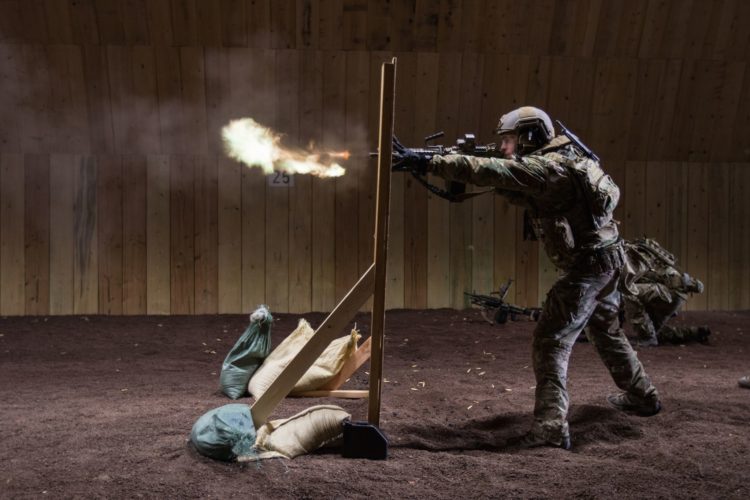It is a common misconception that special operations forces (SOF) are comprised of superhumans that would put to shame Olympian athletes — some would, though. That is not to say that the physical component isn’t crucial. Rather, it is to highlight that it is the mind that drives the body to achieve extraordinary feats of physical strength and endurance. You will often hear cadre members from the various SOF selection and assessment programs, such as the Basic Underwater Demolition / SEAL (BUD/S) training, or the Special Forces Assessment and Selection (SFAS) course, say that it is 70 percent mental and 30 percent physical.
Training the body is quite straightforward: You put on your running shoes and hit the dirt; you pack up your ruck and steam ahead; you hit the gym and lift heavy stuff. Training the mind, however, is far more difficult. To begin with, it is hard to find a metric to measure progress. It is tricky, for example, to measure that you have become more mentally resilient. You have to put yourself through moments of extreme physical and mental duress. When every muscle burns and every joint aches; when that 45-pound rucksack feels more like 100 pounds and the straps are digging into your flesh; when you are frothing up that last damn hill; when all hell breaks loose around you. At that moment, if you can hold fast, fight the inside daemon urging you to quit, and push ahead, then you can say that you are becoming mentally tough. And here is where mindfulness comes into play.
Mindfulness is when a person focuses his awareness on the present whilst simultaneously acknowledging and accepting his feelings and thoughts. It essentially concentrates the mind. The benefits of mindfulness are numerous. It can be used as a therapeutic technique to decompress or to increase one’s situational awareness. It can also exercise the mind to be disciplined at times of high-stress situations, for instance, combat scenarios, and not overact or be overwhelmed by events. Mindfulness training can benefit everyone: from a mother fighting to manage a family and household to an executive managing thousands of employees to a foreman supervising a construction site to a Navy SEAL preparing to go to combat. Indeed, warfighters could benefit very much from such training because of the stressful nature of their everyday lives.
The U.S. Special Operations Command (SOCOM) has acknowledged the potential benefits that such training could bring to its troops and to aspiring soldiers, marines, airmen, and sailors who wish to join its elite ranks. Partnering with the University of Miami, SOCOM began an experiment to determine how best to incorporate mindfulness training to its units.
“Because these soldiers are required to do the most difficult and cognitively demanding tasks under extreme conditions, we want them to have the maximum amount of attention and working memory to succeed at those tasks,” said Amishi Jha, a neuroscientist with the University of Miami.
The study followed around 120 operators from across SOCOM’s units. Before the experiment began, the troops underwent a computerised attention evaluation to determine their working memory and cognitive ability. Throughout the experiment, the participants received classes on the subject and had to practise mindfulness for at least 15 minutes every day. At the end of the study, the troops took the same evaluation that they had undergone before beginning the month of training. The research team discovered that the month of mindfulness training made special operators more capable of controlling their minds. And thus, they assert that the troops “may well be more capable as they deal with humanitarian, environmental, and security challenges that our country and the world face.”
Already have an account? Sign In
Two ways to continue to read this article.
Subscribe
$1.99
every 4 weeks
- Unlimited access to all articles
- Support independent journalism
- Ad-free reading experience
Subscribe Now
Recurring Monthly. Cancel Anytime.











COMMENTS